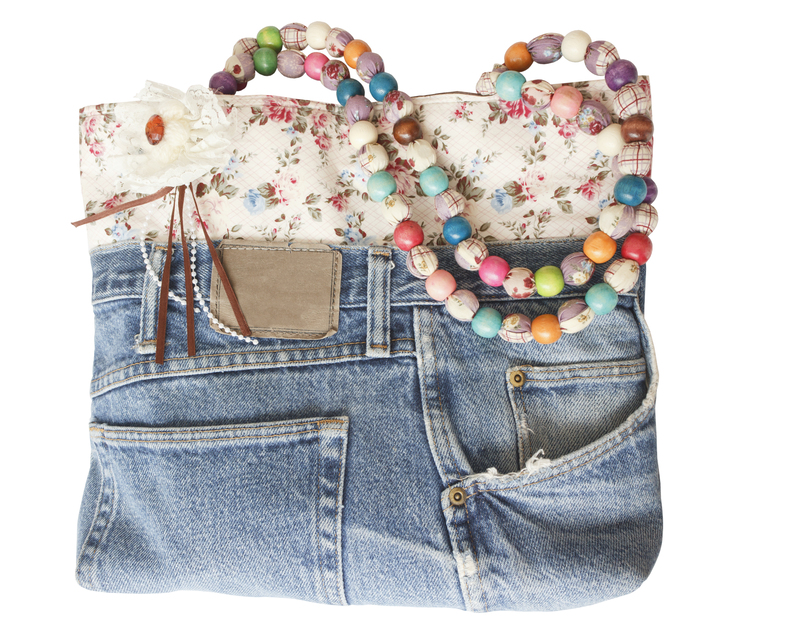Cutting Plastic Waste: Smart Tips for Sustainable Living
Plastic waste is one of the most pressing environmental issues of our time. Each year, millions of tons of plastic enter our landfills, oceans, and waterways, harming wildlife and polluting our planet. Adopting sustainable living practices is crucial for reducing our reliance on plastics. This comprehensive guide offers smart, actionable tips for cutting plastic waste, boosting your eco-friendly lifestyle, and contributing to a greener world.
Why Is Reducing Plastic Waste Important?
Plastic has become an integral part of modern life, but its convenience comes at a significant cost. Single-use plastics such as bags, bottles, and packaging are used for mere minutes, yet persist in the environment for centuries. Reducing plastic waste helps:
- Protect wildlife from ingestion and entanglement
- Combat pollution in oceans, rivers, and ecosystems
- Reduce landfill overflow and municipal waste costs
- Conserve resources and reduce greenhouse gas emissions
By taking proactive steps, you can minimize your plastic footprint and set an example for others to follow. Let's explore smart strategies for sustainable living that truly make a difference.

Smart Tips for Cutting Plastic Waste in Everyday Life
Implementing small changes in daily routines can significantly decrease the amount of plastic you consume. Below, find practical and sustainable living tips for reducing plastic waste in every aspect of your life.
1. Bring Your Own Reusable Bags
Avoid single-use plastic bags by carrying your own durable, reusable shopping bags. Store a few fabric totes in your car, backpack, or purse to ensure you never have to opt for plastic.
- Choose bags made of strong materials like cotton, jute, or recycled plastics.
- Look for compact foldable options for daily convenience.
- Encourage friends and family to switch to reusables.
Remember, repeated use of reusable bags not only helps minimize plastic bag waste, but also saves you money, as many stores now charge for single-use bags.
2. Switch to Reusable Bottles and Cups
Single-use water bottles and coffee cups contribute immensely to plastic pollution. Opt for reusable alternatives to cut down on disposable plastics:
- Invest in a stainless steel or BPA-free reusable water bottle.
- Carry a reusable coffee cup or thermos when visiting cafes.
- If you enjoy smoothies or juices, bring a mason jar or reusable tumbler.
Refilling your own bottle is healthier, cost-effective, and significantly reduces your contribution to plastic waste streams.
3. Ditch Plastic Straws and Cutlery
Plastic straws, stirrers, and utensils are used briefly but take hundreds of years to break down. Replace these with sustainable options:
- Use stainless steel, bamboo, or silicone straws.
- Pack a set of reusable cutlery in your bag for meals on-the-go.
- Say "no straw, please" when ordering drinks at restaurants.
Making these simple swaps cuts down on single-use plastics and sends a strong message to businesses about **demanding sustainability**.
4. Shop Smart: Buy in Bulk and Avoid Excess Packaging
Choosing products with minimal or no plastic packaging is an effective way to reduce your waste. Here's how to shop more sustainably:
- Buy grains, nuts, and other staples from bulk bins using your own containers.
- Select loose produce instead of plastic-wrapped fruits and vegetables.
- Opt for brands that use glass, cardboard, or compostable materials.
Bulk shopping not only reduces plastic waste but might also save you money in the long run.
5. Store Food Sustainably
Traditional plastic wrap and bags aren't your only food storage options. Consider these eco-friendly alternatives:
- Glass containers with airtight lids for leftovers and meal prepping.
- Beeswax wraps or silicone lids in place of cling film.
- Reusable silicone bags for snacks, sandwiches, and freezing food.
These strategies can help you dramatically lower your plastic consumption at home and keep food fresher as well!
6. Personal Care: Sustainable Choices in the Bathroom
Your bathroom is another hotspot for plastic waste: shampoos, soaps, razors, toothbrushes, and more. Here's how to shift to greener choices:
- Select bar soaps and shampoos instead of liquid versions in plastic bottles.
- Switch to bamboo toothbrushes and biodegradable dental floss.
- Use safety razors or razors with replaceable blades.
- Buy refillable deodorants or make your own at home.
Caring for yourself sustainably is both easy and rewarding, and it significantly reduces your household plastic waste.
7. Choose Refillable and Concentrated Cleaning Products
Cleaning supplies often come in single-use plastic bottles. Reduce this plastic waste by:
- Purchasing refillable or bulk cleaning supplies.
- Using concentrated solutions in glass bottles - just add water at home.
- Making your own cleaners using simple ingredients like vinegar, baking soda, and lemon.
Not only do these swaps help the environment, they may also limit your exposure to harmful chemicals commonly found in conventional cleaners.
8. Shop Secondhand and Mindfully
Clothing and home goods often come wrapped in plastic. Shopping secondhand or mindful purchasing can help:
- Visit thrift stores, consignment shops, or online marketplaces for gently used items.
- Support brands committed to minimal or plastic-free packaging.
- Borrow, rent, or swap items that you don't need to own permanently.
Every time you buy used or plastic-free, you keep plastic out of the waste stream and reduce demand for new products that rely on plastic packaging.
Simple Swaps: Replace Plastics with Sustainable Alternatives
Sometimes the best way to cut plastic waste is to directly substitute plastic items for eco-friendly choices. Here are some simple swaps:
- Plastic wrap -> Beeswax sheets or silicone lids
- Plastic shopping bags -> Cloth or canvas bags
- Disposable water bottles -> Stainless steel or glass bottles
- Plastic produce bags -> Mesh or net reusable bags
- Plastic food containers -> Glass or stainless steel
- Plastic straws and cutlery -> Bamboo or metal alternatives
- Shampoo and soap bottles -> Bar soaps and shampoo bars
- Toothbrushes -> Bamboo handles and compostable bristles
- Cleaning sponges -> Natural fiber or compostable sponges
Consistency is key. The more you integrate these changes, the more your plastic use will diminish over time.
Cutting Plastic Waste at Work and School
1. Pack Plastic-Free Lunches
Single-use containers and packaging are common in lunchrooms. Here's how to pack sustainable meals:
- Use reusable lunchboxes and containers.
- Swap cling wrap and sandwich bags for beeswax wraps or silicone pouches.
- Include reusable cutlery and napkins.
2. Advocate for Change
Encourage your workplace or school to adopt plastic-free policies such as:
- Phasing out single-use plastics in cafeterias and break rooms.
- Providing filtered water stations to minimize bottled water consumption.
- Organizing plastic waste reduction campaigns and challenges.
The Role of Recycling in Reducing Plastic Pollution
While the top priority is to reduce plastic consumption, recycling remains an essential tool in the fight against plastic pollution. Follow these tips to improve your recycling habits:
- Check local recycling rules - not all plastics are accepted everywhere.
- Rinse out food containers to avoid contaminating other recyclables.
- Remove caps and labels as required by your program.
- Never wish-cycle - only recycle plastics you know are accepted.
- Encourage your community to improve recycling infrastructure and education.
Remember: recycling is important, but it should be your last option after reducing and reusing where possible.
Get Involved: Supporting Wider Change for a Plastic-Free Future
1. Support Plastic-Free Initiatives and Brands
Many companies are shifting to sustainable packaging and production. Support businesses that:
- Use biodegradable, compostable, or recyclable materials.
- Offer products with minimal or no plastic packaging.
- Engage in take-back or refill programs to reclaim packaging waste.
2. Join Community Cleanups and Advocacy
Participating in local cleanups and environmental activism can make a significant impact:
- Remove existing plastic waste from parks, beaches, and waterways.
- Educate neighbors about the impact of plastics.
- Sign petitions and advocate for bans on single-use plastics in your area.
Overcoming Barriers: How to Make Sustainable Living Stick
Switching to a sustainable lifestyle isn't without challenges. Here's how to stay motivated:
- Start small - focus on one habit at a time.
- Plan ahead - pack your bag with reusable items before leaving home.
- Share your journey - inspire others through social media and conversations.
- Celebrate progress - every piece of plastic avoided makes a difference.
It's important to remember that perfection isn't necessary; each sustainable choice counts toward a larger cultural shift.

Frequently Asked Questions: Reducing Plastic Waste
Can one person really make a difference in the fight against plastic waste?
Absolutely! Every sustainable choice, no matter how small, prevents plastics from entering the environment and inspires others to adopt similar habits. Individual action, multiplied across communities, leads to cultural and systemic change.
What are the easiest ways to start cutting out plastic?
Start by carrying reusable bags, bottles, and coffee cups, and refusing single-use plastics when offered. These habits are among the easiest yet most effective steps anyone can take to cut down on disposable plastics.
Are biodegradable plastics a good alternative?
Some biodegradable plastics can help, but many require industrial composting to break down fully. Whenever possible, choose reusable and truly compostable materials like cardboard, wood, or natural fibers for a more sustainable solution.
Conclusion: Together Toward a Plastic-Free Future
Cutting plastic waste and smart sustainable living are inseparably linked. By making informed choices, swapping out disposable plastics, advocating for community and corporate change, and committing to greener habits, each one of us contributes to a cleaner, healthier planet. Let's continue to learn, adapt, and inspire others on the journey to a world less burdened by plastic!
Start today--because every action counts in building a sustainable tomorrow.